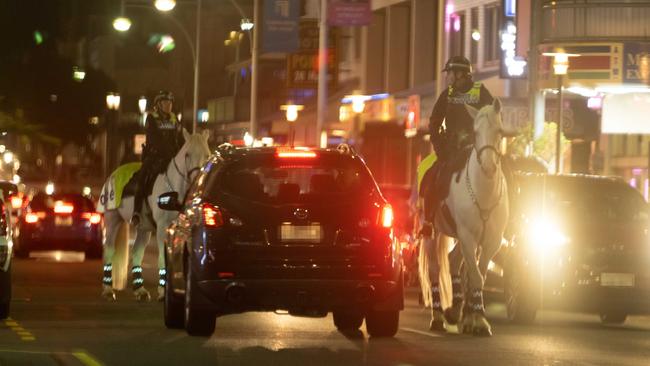Shots fired! Adelaide late night ban on alcohol shots to begin November 1 and lock out laws to stay
Adelaide’s contentious pub lockout laws are not going anywhere as authorities decide that, in fact, they don’t go far enough.
SA News
Don't miss out on the headlines from SA News. Followed categories will be added to My News.
A CBD ban on serving alcoholic “shots” after 2am will come into effect next month and controversial lockout laws are here to stay under a crackdown on drunken troublemakers.
Proposed changes to Adelaide’s liquor licensing laws were formally approved on Thursday, following an eight-month review by South Australia’s liquor watchdog.
Shot sales and any such advertising after 2am will be prohibited in pubs and clubs in the city from November 1, with a one-month transition period.
Developed amid a wider CBD crime wave, the proposed rules define “rapid consumption” of alcoholic drinks as similar to shots, shooters, doubles, laybacks, test tubes, blasters, stingers or jelly shots.
Contentious 3am “lock out” restrictions, preventing partygoers from entering licensed venues between 3.01am and 7am, will also continue as part of the state’s Late Night Trading Code.
The laws, first introduced in October 2013, only allow patrons to enter Adelaide Casino or an approved restaurant after 3am.

Liquor and Gambling Commissioner, Dini Soulio, said the reforms, in consultation with the industry, clarified existing rules on drinks.
He said the regulations would reduce offences committed in the city between midnight and 7am, and enhance public safety.
“This strikes a balance to allow extended trading by licensees without requiring last drinks earlier in the night, as occurs in Australia’s eastern states, Mr Soulio said.
Other reforms allow venue “drink marshals” – only required between 2.01am and 7am every weekend and public holidays – to intervene with a visibly intoxicated person as well as anyone behaving in a disorderly, abusive or violent manner.
City pubs, hotels, nightclubs and “adult entertainment” venues – will also be required to have CCTV cameras at all entry or exit points that must be of “adequate quality” to recognise an alleged offender.
Mr Soulio said the code will be reviewed again in three years.





